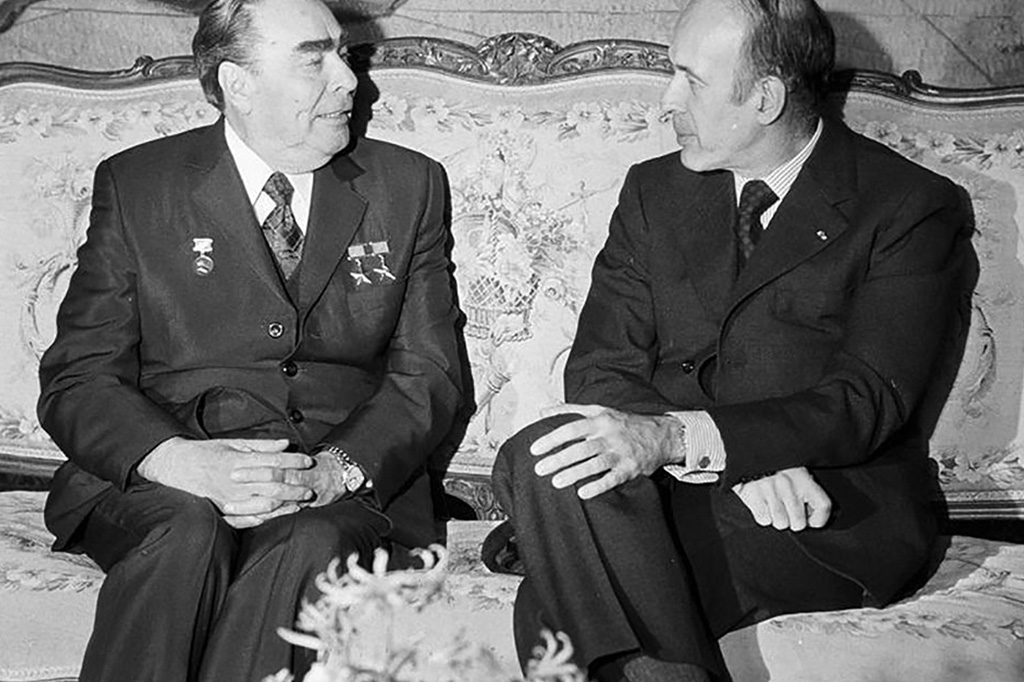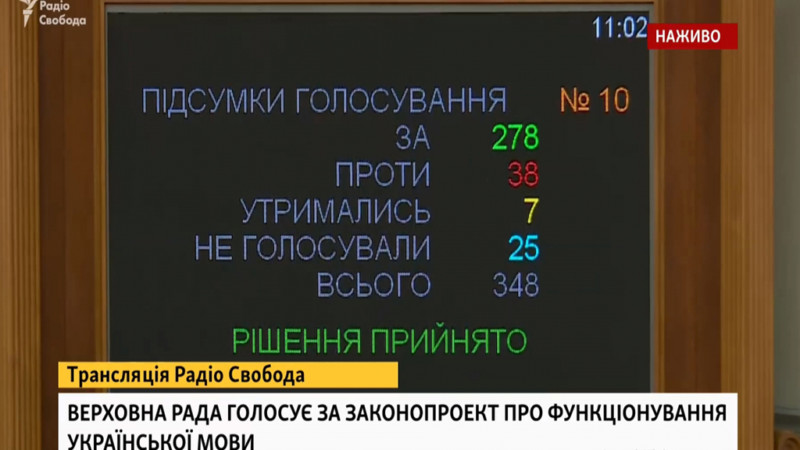Creeping imperialism

Why it is easier for foreign politicians to ignore Ukraine’s existence than to recognize and systematically combat Russian creeping imperialism[1]
The French foreign minister, Hubert Védrine, is wont to repeat that “Russia has not forgiven the West for its humiliation.” Political scientists might argue that a conglomeration of state institutions has no flesh or blood and is thus incapable of feeling emotion, be it humiliation or gratitude, but Monsieur Védrine [seems convinced that he] knows what he is doing. Nevertheless, his illogical refrain long ago became a kind of diplomatic meme that justifies appeasement of or overtures toward the Kremlin; it also encourages a guilt complex in diffident Western politicians and virtually rehabilitates the old Empire, which had a hand in dividing the world into zones of influence subordinated to a few big states.
In a conversation with tyzhden.ua, Paris-based literary expert Mariana Perebenesiuk noted:
Regardless of their respectable façade and tangible efforts in this area, all the powerful empires of the past have retained vestiges of their imperial mentality and political paradigms. To a greater or lesser degree this applies to the political class as well as the electorate that the politicians are courting. […] The efforts of states such as Ukraine that are striving to jettison their colonial dependence are not as recognized by the West as one might wish, primarily because the empires find it easier to understand each other. The ones that lag farther behind—for example, [Imperial] Russia or the Ottoman Empire before the First World War—have always needed the West to be able to regenerate and strengthen their economies and military capacities. Russia has been masterfully skilled at infiltrating the social, political, business, and cultural milieux of many Western countries, especially France. So why aren’t the French, say, better at noticing Moscow’s creeping imperialism? Because it has been going on a very long time, it’s an ongoing tendency.
For at least the last two hundred years, Russia has spared no effort or expense to expand its influence and maintain lobbying systems in other important countries. It is worthwhile to recall that during the Paris Peace Conference (1919–20) the Bolshevik regime in Moscow used its networks in the West to block the emergence of an independent Ukraine—even while it was continuing to do battle with the White Guard. Moreover, as the war continued on its territory Russia was not even an official negotiator, but its lobbying network was effective enough. The Bolsheviks succeeded ably in discrediting the Directory of the Ukrainian National Republic in the eyes of the conference. They even convinced French PM Georges Clémenceau, a fanatical anti-Communist, that [UNR Directory President Symon] Petliura was a Communist!
Ukraine still had sympathizers on its side—the journalist Jacques Pelissier, the scholar Paul Painlevé, the parliamentary deputy Henry Franklin-Bouillon, and others—but their individual voices were not heard above the chorus of Russian lobbyists. Furthermore, the feuds and lack of unity among the several Ukrainian delegations present in Paris (which, like the Russians, could not themselves participate in the negotiations) also affected the final decision. Ultimately, at the end of the First World War Ukraine—unlike Yugoslavia and Poland—did not become independent.
Communism, which demonstratively promised “land to the peasants and factories to the workers,” actually served as a rather successful driver of Russian influence abroad, and not only in the West. Where other empires began to crumble in Asia, Africa, and Latin America, Moscow concomitantly increased its presence (using puppet regimes) and simultaneously recruited hordes of “useful idiots” in developed countries. The ideological trappings of communism were hugely attractive to the poor and uneducated as well as to intellectuals charmed by its far-left ideals, assisting the Kremlin to implement its creeping imperialism on a greater scale. After the USSR collapsed, the networks were weakened but definitely did not disappear. Whether white, red, or colourless, Russian imperialism is incredibly tenacious; it’s impervious to ideologies, regime changes, or political trends. And no matter the name of the current incarnation of the Russian state, it adheres to its imperial prime directive—systematic continuous expansion.
Ukraine, on the other hand, has never had any similar communications leverage, and still does not. As with most post-colonial countries, even today it cannot quite embrace all of its patriotically conscious and unconscious citizens in an overall identity. It is still only solidifying as a political nation, and a realistic view of its history is just being formulated. Both these processes are complicated by forceful external interference by Russia, which applies its own communication channels as well as the janissary voices of nominally Ukrainian commentators who supposedly represent some group within society but in essence are spouting and disseminating Russian propaganda. This dissonant cacophony—masquerading as an “equidistant and objective scholarly approach” (regarding history) or as “democratic pluralism” (regarding public opinion)—is not helping Ukraine to form a clear, distinctive, and recognizable image abroad.
As with other captive nations in the past, Ukraine suffered under the influence of the historiography of a foreign colonizer for several hundred years. Numerous scholars of Slavic civilization and Ukrainian culture-history are still in the grip of externally imposed concepts of Ukraine. This algorithm is not exceptional—it is indeed the rule. “Colonized countries do not participate in the creation of their own image, and their narratives are not heard in the world,” states Ewa Thompson in her article on the history of Central Europe as a post-colonial narrative (“Historia Europy Srodkowej jako narracja postkolonialna,” 2009). Without impediment the colonizer pushes messages about their passivity and weakness, their lack of creative drive or achievements, and about the lameness and helplessness of former colonies that seek emancipation. In this general paradigm Moscow is supremely active, especially with regard to the Baltic states, Ukraine, and Georgia. One need only to glance through the foreign-language pages of the Kremlin mouthpieces RT and Sputnik to comprehend how determined Russia is to promote a negative image abroad of its rebellious former colonies. As for the foreign-language public, “Much depends on the degree of quality and influence wielded by local media,” in the opinion of London-based Ukrainian journalist Bohdan Tsiupyn:
It cannot be said that Russian creeping imperialism is overly successful in Anglophone countries. I would even say the opposite: Russian propaganda resources cannot compete with influential broadcasters the likes of ВВС or CNN, which have countless viewers. However, it behooves us to specially consider the Internet, for example, where the RT’s Spanish and French versions are in fact more popular. Essentially, the Internet does not have such powerful information channels that enjoy the trust of consumers. Іnstead, it provides a forum for various marginal agents that earlier they could hardly have dreamed of. The social media potential has prompted Russia to put money specifically into online resources that disseminate anti-Ukrainian messaging.”
The Francophone information platforms are really very weak on defending against the encroachment of Russian propaganda. According to data from Conspiracy Watch, which specializes in countering conspiracy theories and political disinformation, the Francophone media market includes several hundred “resources” that are aimed at the French public and unambiguously support the Kremlin. Thirty to forty of them have nearly one hundred thousand visitors per month, and the twelve largest ones have up to a million. Тhe flagship among them is Alain Soral’s Égalité et Réconciliation, which has over five million viewers every month. Soral is a great friend of North Korea and of authoritarian regimes generally. All these resources methodically defame Ukraine, while at the same time there are no influential Francophone sites at all that would disseminate the Ukrainian point of view. The Kyiv-based Ukrinform agency has a French-language page that tries as best it can to fill the vacuum with objective and positive information about Ukraine, but its content is just a drop in the ocean compared with the floods of disinformation that exists in the French language.
This depressing picture is compounded by an overall lack of media literacy, which is a problem in Europe as well as in Ukraine. In the opinion of Yevhen Fedchenko, the director of StopFake and of the School of Journalism at the National University of ‘Kyiv-Mohyla Academy’:
The West is in no hurry to take notice of Russia’s creeping imperialism, because recognizing it would imply opposition. A second reason for ignoring its existence lies in the lengthy history of political and cultural affinity, fed by books, ballet, sports, and space. All these long-standing attractions existed in the times of the Soviet Union as well as earlier, during the Russian Empire. Through generous financing of academic centres, publishers, galleries, and various foundations that hand out Russian money to scholars that are loyal to Moscow, an entire class of people is cultivated that become “Russian state workers.” Completely convinced that they are promoting positive ideals, it is not important to them that these matters are paid for by money that has been stolen from the people of Russia. And seeing Ukraine in the “legalized” zone of Russian influence permits them to ignore “nuances” such as the war. In such cases, their own imperial past resonates more with the Russian rather than the Ukrainian position.
Uncritical perceptions, political calculation, and lobbying activity of Russians as well as revision of history of the victors—all these various elements facilitate the situation where willy-nilly, a part of the political class and intelligentsia of the West very often plays along with Putin’s regime. Some allow themselves to be used covertly, others consider themselves proponents of pluralism and “alternative facts,” and another group simply rakes in the money, whose dirtiness would never enter their minds… Ukraine has no other choice but to stand in opposition, else it will cease to exist. Ukraine must persistently fight for the right to its own unique identity, for a true perspective on its history, for independence and state sovereignty. This war demands not only a strong army and effective economy but also a patriotic, educated elite that produces modern outputs for the domestic and foreign information market. Otherwise, Russia’s creeping imperialism cannot be overcome.
Paris-based journalist and translator Alla Lazareva has been an own correspondent for the Ukrainian Week since 2011. Previously she worked at UNIAN and as an own correspondent for Reporters Without Borders, the Мirror Weekly newspaper, and the BBC Ukrainian Service. She is a co-author of a French-language book about Gazprom (2007).
Original published at https://tyzhden.ua/Politics/241695
Authorized English translation by Ksenia Maryniak, CIUS/ASAUS
[1] In the original article, the author uses terms that translate literally as “hybrid imperialism” and “humanitarian expansion”; in this English translation, she has endorsed their replacement with “creeping imperialism.”
